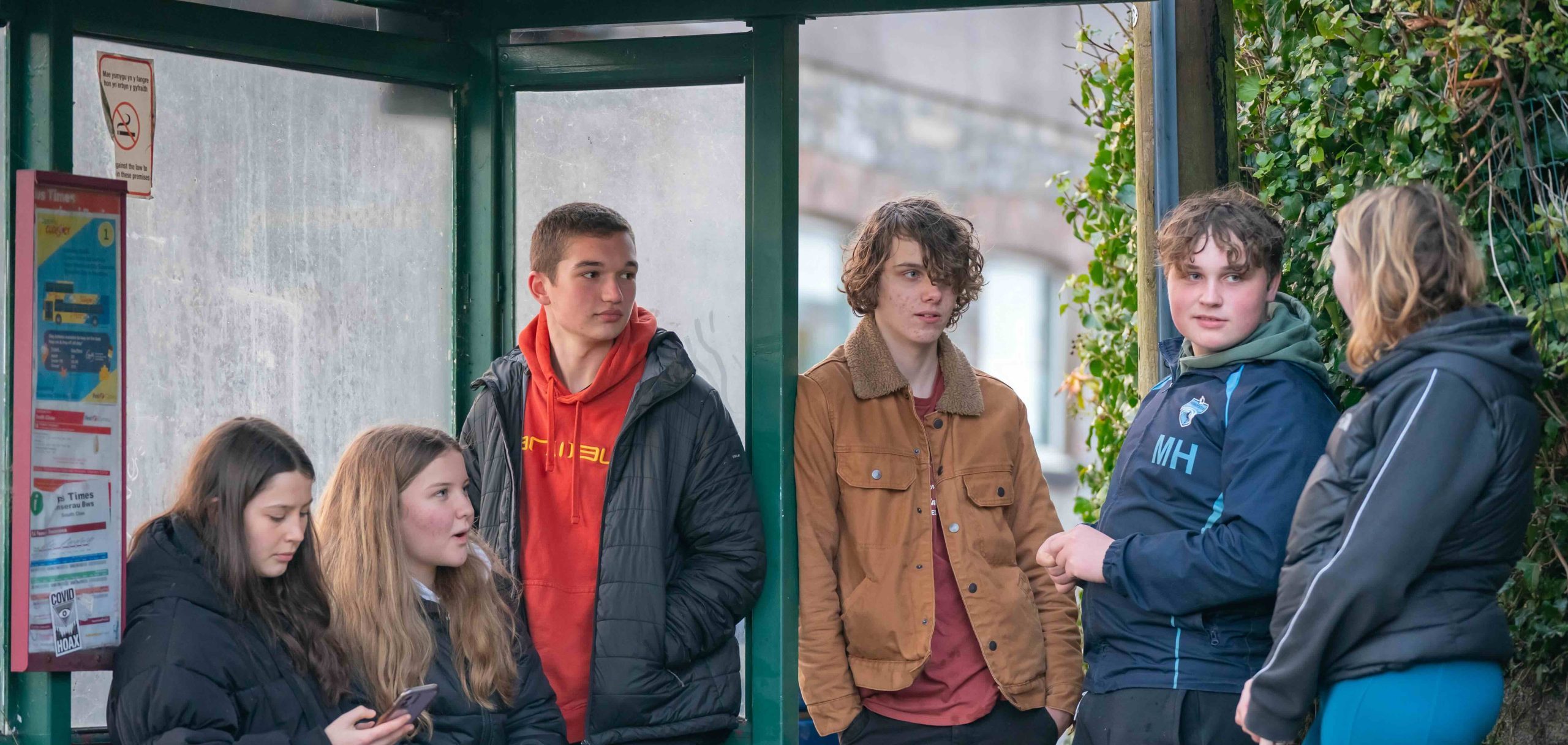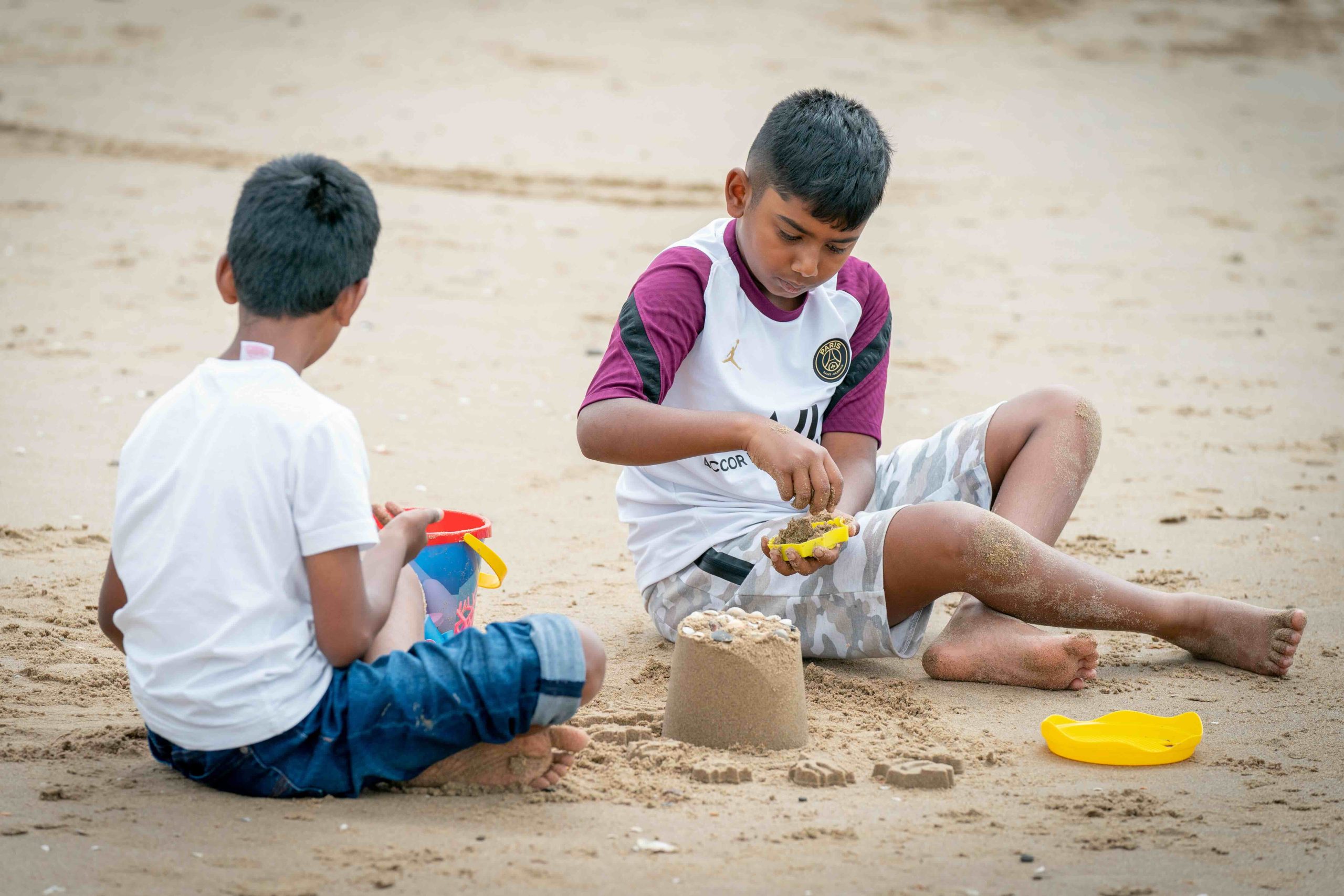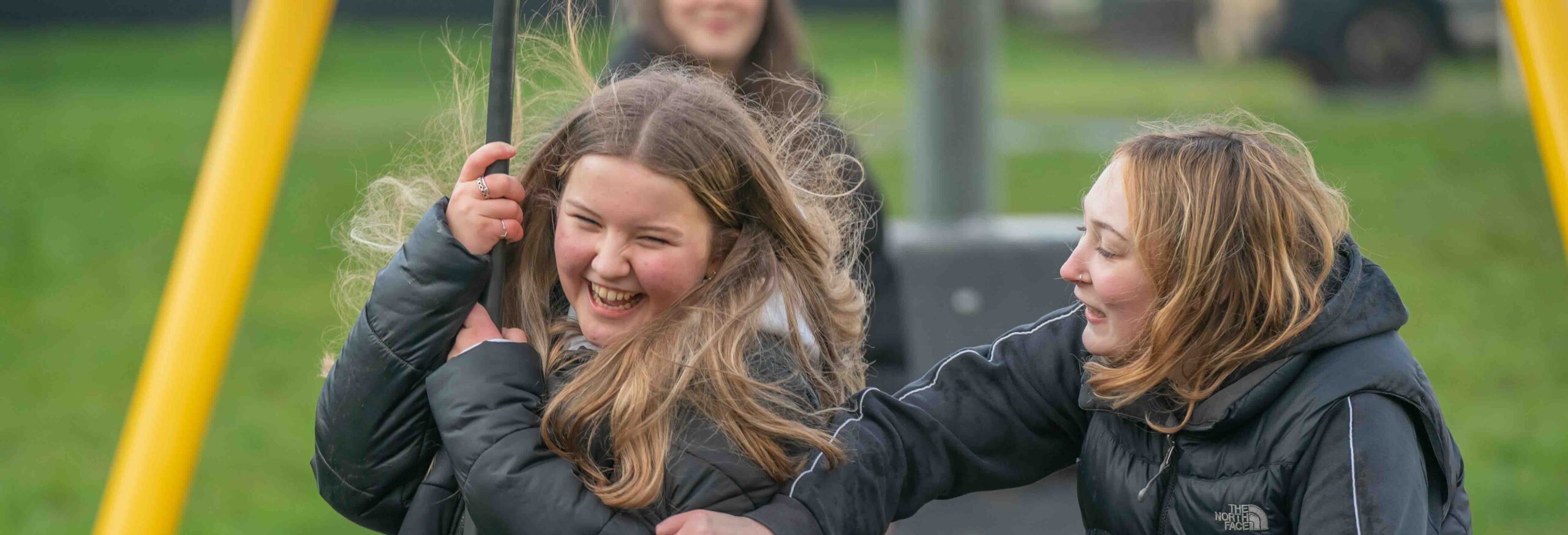All about play
Spending time with your teenage child
Teenage years can be full of different options and experiences outside of the home and immediate family. Many teenagers are busy with things like school, studying, volunteering, hobbies, sports or clubs. Many teenagers spend quite a bit of time online socialising, gaming or relaxing.
In their free time, spending time with other teenagers is likely to be a priority for them.
That doesn’t mean that they won’t also enjoy time with you but it’s natural that they are expanding their horizons beyond the family.
You might need to rethink the times and places where you spend time with your teenage child and be realistic about how much time they have to spend with you.
Here are some suggestions.
Mealtimes
Regular mealtimes can be time to sit and chat together. If you’re eating together less often, some meals may also feel more special – though sometimes you might have to accept their minds are elsewhere.
- Make more of an occasion out of one meal a week when you make a date to eat together. For example, a late breakfast on the weekend, a midweek takeaway, going for a coffee together.
- Give your teenager more choice and control over meals and mealtimes, if possible. What would they like to cook? Can they try working out a meal plan on a set budget? Who would they like to invite? Would they like to set the scene with a theme and decorations?
- Give it a try if they decide to experiment with a different diet, style of cooking or go vegan. You don’t have to cater for every choice, but you might enjoy new things they introduce.
- Try not to worry too much if they rush a meal because they are impatient or occasionally choose things you wouldn’t.
Low-key activities
Low-key activities can be great just to be together with the pressure off. You don’t even really need to talk, though a relaxed atmosphere might be the time your teenage child chooses to chat.
- Go for a walk together. Try night walks, city strolls, explore bits of your own neighbourhood, local parks or countryside.
- Watch TV and films. Let your teenager choose what to watch and just chill on the sofa together.
- Go to the cinema. Great if your teenager is embarrassed to be seen with you in public!
- Sort out a room, do the washing up, clear out a wardrobe or tidy up things in the house. Sometimes doing a simple a shared task together can be pleasurable and satisfying.
- Make time for silly stuff. Even the grumpiest teenager might enjoy a laugh at a silly board game or gameshow.
- Look through family photos or videos together. It can be great to remember fun, or enjoyable moments you’ve had together and think about people that matter to you.
Shared interests and projects
Having something that you both enjoy doing can offer a nice way to spend time with your teenage child. It might be a longstanding interest or something new you decide to try together.
- Play or watching sports together.
- Learn something new together, such as a language or a craft skill.
- Take on a project together such as redecorating their bedroom.
- Ask them to show you how to do something they are good at.
- Volunteer together for a local charity or project.
- Join forces to raise funds for a cause you both care about, for example run a 5k, do a bake sale.
- Look after something together such as a garden or a pet.
- Join a march or a demonstration about an issue that matters to you both.
Spend time with other people
Spending time with other people can show you different sides of your child’s personality and be a chance to have fun together.
- Looking after younger children is an opportunity for teenagers to be responsible and caring but also to play in ways they did when they were younger.
- Hanging out with older people can give a chance to swap stories, life experiences and have a laugh.
- Meeting people from diverse cultures, backgrounds or professions widens our perspectives on the world.
It can feel tricky when teenagers are not quite old enough to do things completely themselves but have grown out of doing so much with you as a family. They often still need you as much as they did when they were younger, but they might show it in different ways. Finding ways to spend time together can be great for both of you.
If your child seems embarrassed or self-conscious to be seen with you, remember you are not alone! This is happening with teenagers, parents, and carers everywhere! You may remember being embarrassed by your parents and then growing out of it.













